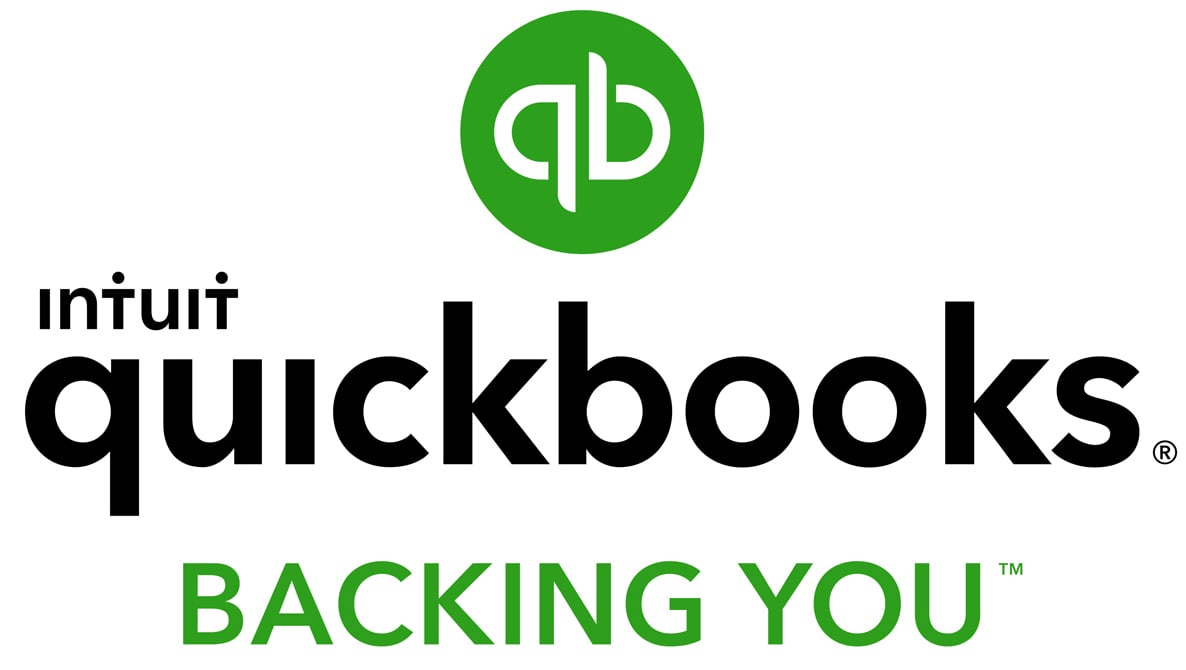3 Best Tax Preparation Software for Small Business
- TaxAct
- TurboTax
- H&R Block
Tax season always seems to be right around the corner—which means you should always keep your business accounting and taxes organized. And if you’re an entrepreneur doing tax prep yourself, you should make certain that you’re using the best tax preparation software for small business to make the process as painless as possible.
But which tax preparation software should you use, exactly? There’s no one answer—just like there’s no one small business. Ultimately, the best business tax software for your business in particular depends on several factors, including how detailed your needs are and just how dirty you’re willing to get with the filing, plus the actual forms you need to file.
We’ll start with the three best tax software for small tax preparers. Then, we’ll show you the essential questions to ask yourself when choosing the best tax prep software for your small business taxes.
The 3 Best Tax Preparation Software for Small Businesses
Wading through the myriad tax preparation software on the market today can feel intimidating, not to mention time-consuming, especially if you’re planning on doing tax prep yourself (along with your thousands of other tasks as a small business owner).
To make the process simpler for you, we’ve chosen the three tax preparation software that we think are especially user-friendly for small business owners. Let’s get to it.
TaxAct
TaxAct’s goal is to create an easy way for both businesses and individuals to file their own taxes online. The company promises that if your tax return isn’t accurate, they’ll refund the cost of the software, pay any difference in your lower refund or higher tax liability, and cover related legal or audit costs up to $100,000.
A Closer Look at TaxAct
TaxAct’s software options are targeted toward several types of business entities, including tax-exempt entities. For example, self-employed individuals, freelancers, independent contractors, and other sole proprietors can use TaxAct Sole Proprietor, which helps you maximize your deductions.
If you need to file specialized tax forms, such as for a C-Corporation or LLC, TaxAct walks you through choosing the correct product to get the software and forms you need, too.
You can get help online from the Answer Center or contact TaxAct for free support if needed. Another great feature is that once you’ve used TaxAct to file your taxes, you have unlimited access to your previous year’s tax return for seven years after the filing deadline.
TaxAct Pricing
All of TaxAct’s software costs $59.95, regardless of your business entity.
TurboTax
There’s a lot to love about TurboTax. First off, you can get on-screen guidance and answers to your questions. They also run error checks on your tax returns as you complete them, and double check your return before it’s filed. If TurboTax miscalculates and you have to pay a penalty, they will repay the penalty plus interest.
A Closer Look at TurboTax
TurboTax offers separate software for different types of businesses. For example, TurboTax Self-Employed is designed to help self-employed individuals, freelancers, and independent contractors maximize their tax credits and deductions. Whether you’re a real estate agent, craftsperson, consultant, or digital designer, the software helps you find tax credits and deductions specific to your industry.
If you own a partnership, C-corporation, S-corporation, or LLC with more than one member, you’ll want to step up to TurboTax Business. This downloadable tax preparation software for small business automatically imports your QuickBooks income and expenses into your tax returns and classifies them. It can also automatically import last year’s tax return, provided you used TurboTax to create it. You can also create unlimited W-2 and 1099-MISC forms, among others, which is useful if you have employees or use independent contractors.
Is your business tax situation unusual or complex? For a few dollars more, TurboTax Live gives you access to a one-on-one review by a CPA or enrolled agent (EA) before you file your taxes, which helps you prepare your taxes with real-time help from experts. They can search more than 450 tax deductions and tax credits to find the ones you’re entitled to.
TurboTax Pricing
TurboTax Self-Employed costs $89.99, or $169.99 if you opt for TurboTax Live. TurboTax Business costs $159.99.
H&R Block
H&R Block lets you choose how you want to handle your tax filing—either do-it-yourself or totally hands-off.
A Closer Look at H&R Block
If you want to do it yourself, use the Self-Employed software to file your taxes online. H&R Block helps you find industry-specific deductions and tax credits, as well as those related to startups. The product includes the Stride app, which automatically tracks your mileage, receipts, and business expenses. It supports Schedule 1040, Schedule 1040A, Schedule 1040 EZ, W-2s, 1099s and Schedule Cs, among many others.
If you want to let the pros handle your tax filing, H&R Block Tax Pro Go is for you. Just upload your tax documents, and H&R Block matches you with a tax pro who has the right expertise for your business. Your returns are prepared virtually within five days—you can message your tax pro at any time, too.
Whichever product you choose, you can add Tax Pro Review for an additional fee. A tax professional reviews your return to make sure it’s accurate and that you received all the deductions and credits you are entitled to. They can also file any tax form you need, even if it’s not included in the tax preparation software you purchased.
Finally, their Peace of Mind tax notice services are available at an additional cost. If you get notified of an audit, an H&R Block Enrolled Agent will accompany or represent you. H&R Block also reimburses up to $6,000 toward any taxes you owe due to errors on their part.
H&R Block Pricing
H&R Block Self-Employed costs $79.99, plus $36.99 per state, but you can take advantage of a free trial.
Alternative Tax Help
This last option isn’t a traditional tax prep software, but it is an extremely useful tool if you’re looking for a bookkeeping software that can help you with your taxes.
Tax Services with Bench
With Bench, you have access to online bookkeeping experts to manage your books, prepare financial statements, and answer any questions you may have. In addition, Bench includes year-round tax support. You’ll have access to Bench Tax Advisors to help you create a tax plan that works for your business—plus, when it comes to filing your taxes, Bench will submit the paperwork on your behalf.
You’ll also receive a year-end financial package with all of the information Bench needs to file your taxes, which gives you an overview of your financial performance for the past year. Moreover, personal federal and state income tax filings are included for sole proprietors. Other business owners can add on personal filings for additional fees.
Bench Pricing
Bench offers three pricing plans, each of which includes their tax services:
- Core: $299 per month
- Flex: $399 per month
- Pro: $599 per month
The Core plan includes real-time accounting and an integrated, free business bank account through LendingClub. The Flex plan includes customized accounting and allows you to connect your existing bank, credit, and payment accounts. The Pro plan includes specialized accounting (for businesses with more complex needs) and also allows you to connect your existing financial accounts.
Before Picking Your Small Business Tax Software, Answer 5 Important Questions
So, you know what we’ve chosen as the three best tax software for small business—but how do you decide which tax preparation software is best for your small business in particular? Start by answering the following five questions. Their answers should lead you to the right accounting software for you.
1. How comfortable are you with DIY tax filing?
Every software programs provide varying levels of support, including, in some cases, in-person consultation via phone or videoconferencing. If you’re a beginner—or if you just want to easily access a professional in case questions arise—choose the software with the best customer support you can find.
2. Are you self-employed or a sole proprietor?
If you have no employees and your business entity isn’t registered as a corporation, LLC, or LLP, your tax preparation needs are less complex—so you can probably opt for the simplest and lowest-cost business tax preparation software out there.
3. What’s your business entity?
If you have employees or you’re not a sole proprietor, your business structure is the primary factor in your choice of tax preparation software.
4. What tax forms do you need to file?
You want to make sure the software you choose supports your required tax forms, such as a Schedule C, Schedule 1040A, or 1099 forms. Plus, if you have employees or hire independent contractors, being able to upload their W-2 forms or 1099 forms directly into the tax preparation app is helpful.
5. Do you want to use a web app or download your tax preparation software?
Most tax preparation software companies offer both online, cloud-based versions and downloadable versions of their software. Online tax prep software has some big advantages—it’s easier to share your data with others, you know the software is always up-to-date, and it’s generally easier to get started with than software you have to download or install. Plus, you can usually buy a more basic version of online software and easily upgrade if needed. Obviously, with something on your local drive, this isn’t as simple.
Choosing the Best Tax Preparation Software for Your Small Business
Okay, the questions aren’t over yet! After reviewing our three best tax preparation software picks, here are five more questions for you to ask yourself before settling on one of these, or any other, business tax software.
When you assess your top contender for tax prep software, find out:
- Are features such as checking the accuracy of your returns, guarantees, and audit support included as part of your package, or do they require additional fees?
- Is it free to file electronically, or does this cost extra?
- What type of support is offered for the software and for tax questions? For example, can you access support by phone, email, online chat, video conferencing, etc.? Also, is this support included or is there an extra charge?
- How quickly can you expect a response to your questions?
Although prices among tax preparation software packages do vary, this isn’t really the time to dither over saving $50. Instead, focus on finding the tax preparation software package for your small business that has the features, support, and security you need to make tax preparation as easy as possible. You’ll thank yourself when tax season really does roll around.

Rieva Lesonsky
Rieva Lesonsky is a contributing writer for Fundera.
Rieva has over 30 years of experience covering, consulting and speaking to small businesses owners and entrepreneurs. She covers small business trends, employment, and leadership advice for the Fundera Ledger. She’s the CEO of GrowBiz Media, a media company specializing in small business and entrepreneurship. Before GrowBiz Media, Rieva was the editorial director at Entrepreneur Magazine.

Featured
QuickBooks Online
Smarter features made for your business. Buy today and save 50% off for the first 3 months.